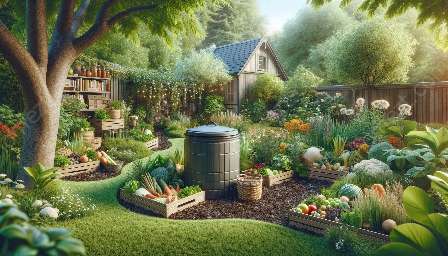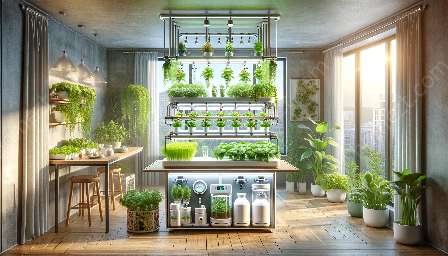Organic gardening offers a harmonious and sustainable approach to growing fruits, vegetables, and herbs at home. With an emphasis on environmentally-friendly practices and natural methods, organic gardening ensures the health of both people and the planet. In this comprehensive guide, we'll explore the fundamentals of organic gardening, its benefits, and how you can integrate it into your overall home improvement and gardening endeavors.
Understanding Organic Gardening
Organic gardening emphasizes natural processes, biodiversity, and ecological balance to maintain healthy soil and crops. Unlike conventional gardening, organic gardening avoids the use of synthetic fertilizers, pesticides, and genetically modified organisms (GMOs).
Instead, it focuses on building healthy, living soil teeming with beneficial microorganisms that support robust plant growth. By working in harmony with nature, organic gardeners strive to create a thriving ecosystem that sustains itself without causing harm to the environment.
The Benefits of Organic Gardening
Organic gardening offers numerous benefits for both individuals and the environment:
- Healthier produce: Organic fruits, vegetables, and herbs are free from harmful chemical residues, offering superior taste and enhanced nutritional value.
- Environmental conservation: Organic gardening practices protect air, water, and soil quality while promoting biodiversity and wildlife habitat conservation.
- Cost savings: By creating your own organic garden, you can reduce reliance on store-bought produce and gardening supplies, resulting in long-term cost savings.
- Personal well-being: Gardening has been shown to reduce stress, enhance mood, and provide physical exercise, contributing to overall well-being.
Getting Started with Organic Gardening
Embarking on your organic gardening journey involves several key steps:
- Site selection: Choose a suitable location for your organic garden that receives ample sunlight and has well-drained soil.
- Soil preparation: Test the soil to determine its composition and pH, and then amend it with organic matter such as compost, manure, or mulch to improve fertility and structure.
- Plant selection: Opt for organic, non-GMO seeds and plants that are well-suited to your local climate and growing conditions.
- Cultivation and maintenance: Employ organic gardening techniques such as crop rotation, companion planting, and natural pest control to nurture your garden and promote plant health.
Integrating Organic Gardening with Home Improvement
Organic gardening and home improvement go hand in hand, offering synergistic benefits that enhance both your living space and your well-being:
Enhanced aesthetics: A well-maintained organic garden can add beauty and charm to your home, serving as a natural extension of your living environment.
Improved air quality: By growing plants, especially native species, you contribute to improved air quality inside and outside your home, creating a healthier living environment.
Healthier lifestyle: Fresh, organic produce from your garden can inspire a healthier approach to cooking and eating, supporting overall well-being and nutrition.
Conclusion
The practice of organic gardening offers numerous rewards for both individuals and the planet, promoting a healthier lifestyle, sustainable environmental stewardship, and a deeper connection with nature. By integrating organic gardening with your home improvement and gardening efforts, you can create a thriving, sustainable oasis that enriches your daily life and benefits the world around you.












































